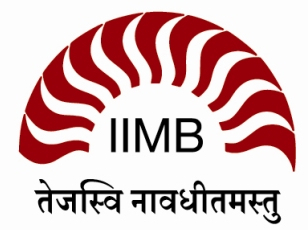Tax Reforms - The Direct Tax Code
with Padmini Srinivasan ,
Assistant Professor
The draft of the Direct tax Code was presented in the Parliament in August 2009. It represents a drastic change in the taxation mechanism, and is bound to have a profound impact on individuals as well as corporates.
In this interview with Prof. Padmini Srinivasan, faculty in the Finance and Control department at IIM Bangalore, who has done research in corporate income tax, we try to understand the Direct Tax Code in terms of the need for this tax reform, general provisions and impact of the proposed tax regime on individuals, corporates and foreign investment.
Conclusion
The current system of tax is fraught with complexities owing to many amendments over the years. The Direct tax code has done a good job of removing unnecessary complications in the tax laws. The definitions and provisions have been modified, thereby keeping pace with the times. The Direct tax code would not have any long term impact on individuals.
The Direct tax code will probably not have any long term impact on individuals. The corporate income tax rates have been slashed down, but keeping deductions in mind, the effective tax rate is unlikely to be affected drastically. The calculation of the Minimum Alternative Tax based on Assets needs to be relooked at, especially for those companies which are working on projects with long gestation periods.
While the reduction of corporate income tax rates for foreign companies operating in India bodes well, it is also necessary to consider the provisions pertaining to double taxation and the agreements which India has with other countries on the same, before making any conclusions on whether India offers good scope for investment to a particular foreign company.
Quotes
From the interview
"Tax reforms can be of two kinds: one, tinkering with the existing laws, or starting with a new slate. In that sense, the Direct Tax Code goes with the second alternative, but by taking inputs from the existing acts and from the additional rules and regulations."
(On tax reforms in general, and the course taken by the Indian Government)
"Over the years, we seem to have forgotten Adam Smith."
(On the complexities in the current taxation system)
Profile
Dr. Padmini Srinivasan is an Assistant Professor in the Finance and Control Area at IIM-Bangalore. She has a B.Com from Bombay University (R.A Poddar College) and a Ph.D from the National Law School of India University (NLSIU), Bangalore.
She is a fellow member of the Institute of Chartered Accountants of India and an Associate Member of the Institute of Company Secretaries of India. Prior to joining IIM-Bangalore on a full-term basis, she was guest faculty both at IIM-Bangalore and NLSIU Bangalore.
Dr. Srinivasan's research interests include corporate disclosure practices, corporate governance, managerial accounting and corporate income tax. She was a co-member of the team consulting for International Finance Corporation (IFC) for the BWSSB water supply and sewerage project. She has contributed invited book articles and published articles in various renowned journals.
She has also handled various accounting and finance projects in the industry.
